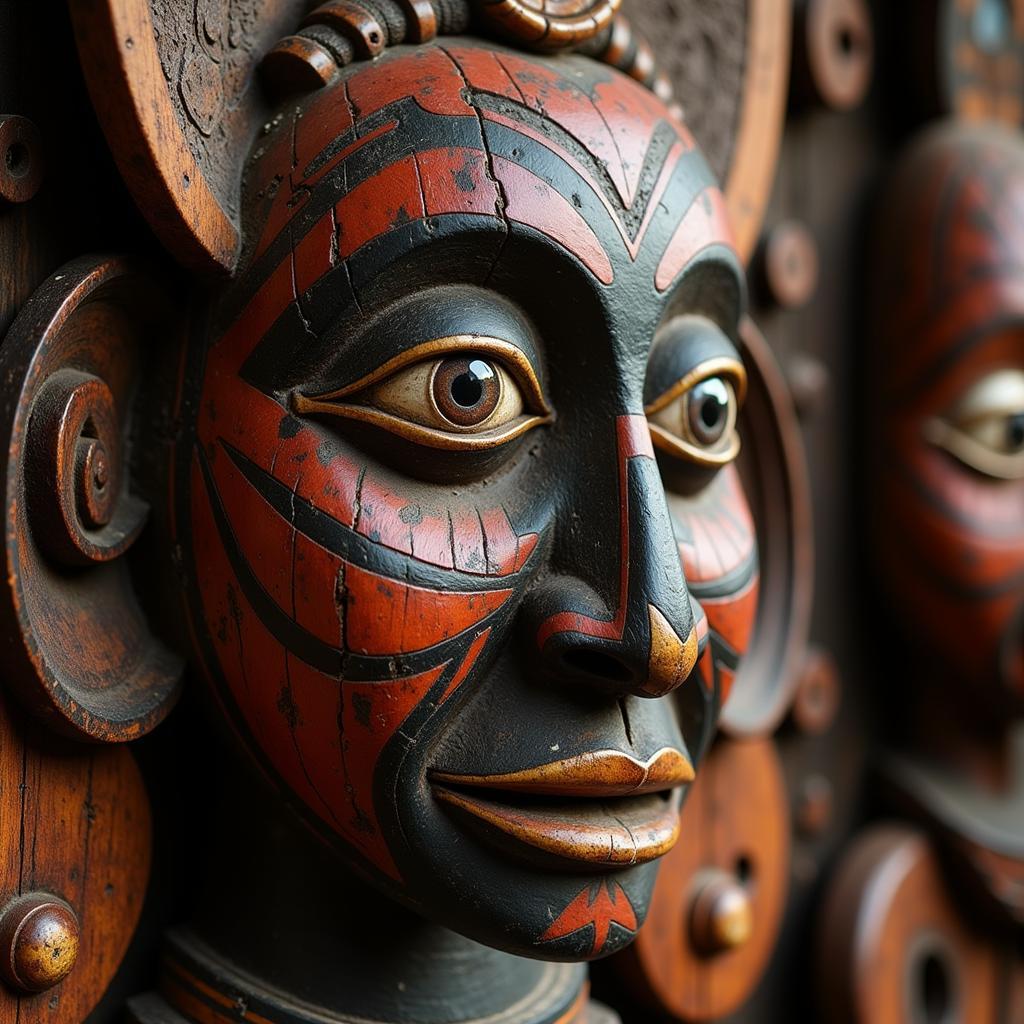Discovering the World of African Dolls
African dolls are more than just playthings; they are powerful symbols of cultural heritage, artistic expression, and societal values. They offer a unique window into the diverse traditions and beliefs of the many peoples across the African continent. From simple wooden figures to elaborately adorned sculptures, these dolls embody a rich history and serve a variety of purposes beyond childhood amusement.
More Than Just Toys: The Significance of African Dolls
African dolls have held a significant role in various communities for centuries. They are not merely children’s toys, but rather important cultural artifacts that reflect the values, beliefs, and traditions of different African societies. These dolls can represent important figures, ancestors, or deities, and are often used in ceremonies, rituals, and storytelling. They serve as tangible links to the past, passing down cultural knowledge and history from one generation to the next. Their creation also showcases the artistic talents of African artisans, who utilize diverse materials and techniques to craft these unique objects.
The Diversity of African Doll-Making Traditions
The vastness of the African continent translates to a rich tapestry of doll-making traditions. From North Africa to South Africa, and from East Africa to West Africa, each region boasts its own distinct styles, materials, and symbolism. For instance, the Ashanti people of Ghana are renowned for their Akua’ba dolls, known for their distinctive flat, disc-shaped heads, symbolizing beauty and fertility. Meanwhile, in other parts of Africa, dolls might be crafted from clay, corn husks, or even recycled materials, reflecting the resourcefulness and creativity of the artisans. These diverse materials and styles highlight the ingenuity and adaptability of African art forms.
Exploring Different Types of African Dolls
From simple wooden figures to elaborately beaded creations, African dolls represent a wide spectrum of artistic styles and cultural meanings. Some serve as educational tools, teaching children about their heritage and social roles, while others hold spiritual significance, used in rituals and ceremonies. Understanding the different types of African dolls provides a deeper appreciation for the continent’s rich cultural heritage.
Materials and Techniques: A Testament to African Ingenuity
African doll makers employ a diverse range of materials, reflecting the natural resources and artistic traditions of their respective regions. Wood, clay, cloth, beads, and even recycled materials are transformed into beautiful and meaningful objects. The techniques used are equally varied, from intricate beadwork and carving to weaving and painting. This resourcefulness and creativity are testaments to the ingenuity of African artisans.
“The beauty of African dolls lies not only in their aesthetic appeal but also in the stories they tell,” says Dr. Anika Nkosi, a renowned anthropologist specializing in African art and culture. “Each doll is a testament to the rich cultural heritage and artistic ingenuity of its creators.”
African Dolls in the Modern World: Preservation and Evolution
Today, African dolls continue to play a vital role in preserving cultural heritage. They are also gaining increasing recognition in the global art market, appreciated for their aesthetic beauty and cultural significance. However, it’s crucial to ensure that this appreciation is coupled with respect for the cultural traditions they represent.
The Importance of Ethical Sourcing and Cultural Sensitivity
As the popularity of African dolls grows, it’s essential to be mindful of ethical sourcing and cultural sensitivity. Supporting fair trade practices ensures that artisans receive fair compensation for their work, while respecting cultural heritage means understanding the significance of these dolls beyond their aesthetic value.
“It’s crucial to approach African dolls with respect and understanding,” adds Dr. Nkosi. “These are not just decorative objects; they are embodiments of cultural identity and heritage.”
Conclusion: Appreciating the Beauty and Significance of African Dolls
African dolls offer a fascinating glimpse into the diverse cultures and traditions of the African continent. From their artistic beauty to their cultural significance, these dolls are much more than just playthings. They are powerful symbols of heritage, creativity, and identity. By understanding and appreciating the stories they tell, we can gain a deeper appreciation for the rich tapestry of African Life. Explore the world of African dolls and discover the beauty and significance they hold.
FAQ
-
What are African dolls made of?
African dolls are made from various materials, including wood, clay, cloth, beads, and recycled materials. -
What is the significance of African dolls?
African dolls hold cultural and spiritual significance, representing ancestors, deities, and societal values. They are used in ceremonies, rituals, and storytelling. -
Where can I buy authentic African dolls?
Authentic African dolls can be purchased from reputable fair trade organizations and galleries specializing in African art. -
How can I care for my African doll?
The care of African dolls depends on the materials used. Consult a specialist for specific instructions. -
Are African dolls only for children?
No, African dolls are not just for children. They are also collected and appreciated by adults for their artistic and cultural value. -
What are some famous types of African dolls?
Some well-known African dolls include the Akua’ba dolls from Ghana. -
How do African dolls reflect cultural diversity?
African dolls reflect cultural diversity through their varying styles, materials, and symbolism, representing the unique traditions of different African communities.
Need further assistance? Contact us at +255768904061, email [email protected], or visit us at Mbarali DC Mawindi, Kangaga, Tanzania. Our customer service team is available 24/7.





